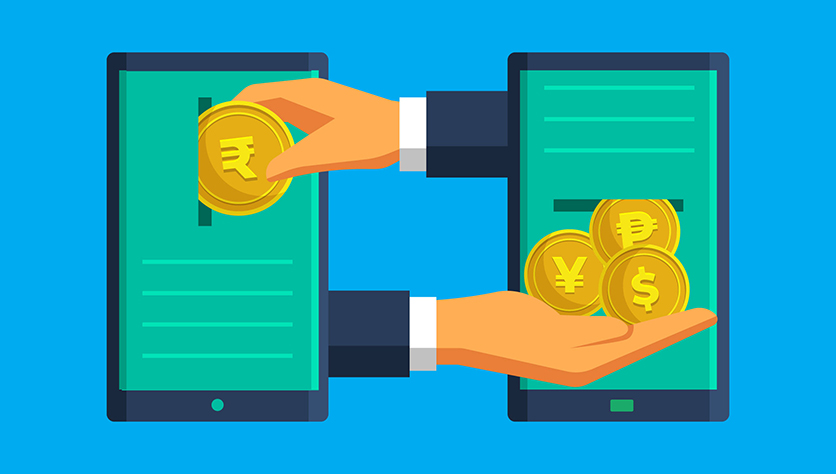The woman was forced to return to her card a mistake of 50 thousand. With interest, lawyers explained why a person could be obliged to return a large amount than he was transferred to the account. They also
The woman was forced to return to her card a mistake of 50 thousand with a percentage
Lawyers explained why a person can be obliged to return a large amount than he was transferred to the account. They also told what to do to a person who accidentally transferred the money to a stranger or to the organization’s account

A resident of Yekaterinburg V. transferred 50 thousand rubles through a “Sberbank-Online” on someone else's card. Then he turned to the bank, reported an error and asked to provide information about the recipient. However, he was refused, citing a bank secret.
After that, V. went to court. As a result, the amount of the transfer amount of the transfer was collected from the owner of the bank card account – 50 thousand rubles, interest for using other people's money – 7856 rubles. and 1935 rub. court costs.
Then I. went to court. She said that she had previously transferred P. 113 thousand rubles. The money transferred to her account, according to Y., was a return of debt. However, she was not able to prove this, and the court left without change 1 previously issued court decision.
Vyacheslav Golenev’s lawyer “Zheleznikov and Partners” told why the courts made such decisions.
Why should a person return the money, and even more than he was transferred to the card by mistake?
If a person transferred the money to another to the card and at the same time did not indicate the purpose of the payment, the court considers the funds received by unjust enrichment and obliges the recipient to return them. Moreover, interest can be accrued for the amount of payment during their use at the key rate of the Central Bank of the Russian Federation. They are called interest for the use of other people's funds. In such cases, the courts refer to the Civil Code.
The Code says: if a person acquired property at the expense of another, but this is not provided for by law and they did not conclude a deal, such an acquisition is an unjust enrichment. Property and income extracted from it must be returned (paragraph 1 of article 1102, paragraph 1 of article 1107 of the Civil Code of the Russian Federation).
The court obliged the I. to return the money, because it was proved that the funds were transferred to her to the card, but V. did not want to. By law, such a translation is not provided and it was not proved that they made a deal.
Why didn’t the court calculate the money transferred by returning the debt?
I. failed to prove that payment is a loan return. And that's why.
Any payment takes place at the Bank Legal Identification, i.e. It is attributed to a specific type and decrypted its purpose. To do this, in the payment order, there is an appropriate column. And even when making an online board, a “payment” is formed, which is stored in electronic form in the bank.It can be obtained at the bank's office in the form of a certified copy – only such a document has the force of proof in court.
That is why failure to indicate the purpose of payment when transferring money is a significant risk factor. Within three years from the date of transfer of funds, the recipient may “receive” from the sender of “incomprehensible” money also a claim for their recovery. At the same time, a “payment”, which does not indicate the type of payment and its purpose, will not allow the court to determine what the money was transferred for. And if the sender insists that he translated them, for example, by mistake, then the court will agree with him. After all, the mere “word of honor” of the recipient that this is a return of a loan previously issued to him is not enough. In this case, the court will recover the money, regarding it as unjust enrichment.
By the same principle, did the courts oblige the victims of the financial pyramid to return the money?
Yes, the situation was like this: individuals transferred funds to each other in the hope of returning them with a large percentage – the classic “Ponzi scheme”. At the beginning of 2013, the pyramid collapsed, and the “unfortunate investors” filed suits with the “heads of the cells”, to whom they transferred money. The courts satisfied their claims with reference to the rules on unjust enrichment. Tens (their cell consisted of 10 depositors), hundreds (in the cell – 100 depositors) and thousanders (in the cell – 1000 depositors) said that the money transferred to them is a donation, deposit agreement”, “charity”. But the courts did not take their words into account and pointed to the lack of a legal basis for withholding funds.
And if the transferred money is really the return of the loan, how to prove it?
To prove that the transferred money is the return of the loan, you need to submit documents evidencing this: a receipt, a payment order with the purpose of payment indicated in it, correspondence between the parties.
In order for such evidence to be available, it is enough to ask the borrower, when making a payment, to indicate its purpose – the repayment of the loan. If he does not, then it is better to write him a letter. It should write that the money was accepted to repay a previously issued loan, and refer to an agreement or receipt for issuing money on credit. The letter must be sent to the borrower by Russian Post. In this case, the type of postal item is a valuable letter. This will mean that its content has a certain value. A description must be included in the letter. It indicates the list of documents and their cost, which the sender has the right to demand in case of loss of correspondence.
Vasily Vayukin, lawyer of the Moscow Chamber of Advocates, told how to act to a person who transferred money, but realized that it was not necessary to do this.
What to do when I realized that I transferred money to someone else's card by mistake?
1. The first thing to do is to get a certificate from the bank about the payment made.In the same place, write an application for the return of funds to show that there is no intention to transfer them. These actions will allow you not to waste time on calls and line transfers. In addition, if you do this right away, you may find that the payment has not yet been made. This way you can avoid problems with contacting the wrong recipient.
2. Then you need to write an application addressed to the one to whom you transferred the money. It should indicate that this payment is erroneous.
If the money was transferred to the organization, then during the transfer its name and TIN were indicated. On the Internet you will find the coordinates for contacting.
If this is an individual, then you must have a first name, middle name and phone number. The bank is not obliged to provide you with information about the owner of the card. That is, there are difficulties here. It would be more reasonable to immediately go to court, skipping the stage of sending a statement to the person about the erroneous transfer of money. This is due to the fact that if you have proof of payment and at the same time you did not conclude an agreement with the recipient, then the application will be satisfied in court. The court will independently find the defendant (recipient), and you will recover from him the costs of going to court.
3. The next stage is going to court.
Note that the sequence of actions is described precisely from a legal position. No one forbids calling the bank and trying to resolve the issue on a voluntary basis. However, you may be refused, and calls will only delay the time for a legitimate refund.
So, the term for going to court is three years from the moment when the plaintiff, i.e. the one who applies to the court has learned about the violation of his right.
You will need to file a claim with the court. About what it should be in form and content, you can learn from Art. 131 of the Code of Civil Procedure. You will need to decide which court to apply to. This question is related to the place of residence of the defendant or the location of the organization to which you transferred the money.
What if the money is transferred to the account of the organization?
If you made a payment by accident and you know the organization, you periodically transfer money to its account, for example, this is Mosenergosbyt, then you file a lawsuit at its location. Indicate when, how much you transferred and your account details, and attach proof of transfer. Immediately indicate the amount of unjust enrichment and the amount of interest for the use of other people's money.
The situation can be complicated by the fact that you have a template and you pay under a valid contract, which means that the organization may perceive your payment as reasonable. Then, if you did not have a debt, you can collect documents confirming payment in the frequency stipulated by the contract. It should be shown that this amount is not related to the specified payments.
If the contract with the organization is concluded and you had to transfer the funds, then the situation changes radically, and not in your direction.The ability to defend the fallacy of payment appears only if you paid much more.
And if the money is transferred to a stranger?
If you are unknown, F.I.O. Man, you can go to court at your place of residence. If the address of the one to which the funds is transferred is unknown, you can apply to the court at the location of the recipient’s bank. Such situations are currently widespread: a person, having seen a beautifully advertised product on the Internet, immediately transfers money to the specified account, and then thinks that it was necessary to at least read the reviews. We have to return the money through the court.
1 Appeal ruling of the Judicial Collegium for Civil Cases of the Sverdlovsk Regional Court of January 10, 2019 in case No. 33-415/2019.


